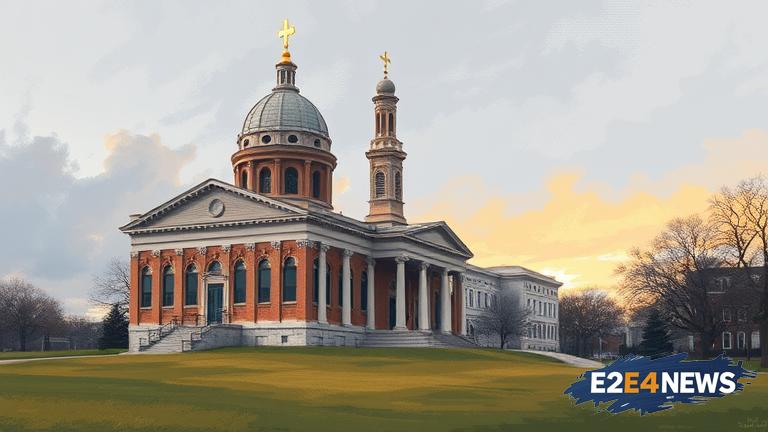The state of Wisconsin has been at the center of a heated debate regarding the definition of religion, with many arguing that the current interpretation is too narrow and restrictive. This controversy has significant implications for individuals and communities who practice non-traditional or minority faiths. The issue began when a local court ruled that a particular religious group did not meet the state’s definition of a religion, sparking outrage and concerns about religious freedom. The ruling was based on a specific set of criteria that defined what constitutes a religion, including the presence of a deity, rituals, and a moral code. However, many argue that this definition is outdated and fails to account for the diversity of religious beliefs and practices in modern society. The controversy has highlighted the need for a more inclusive and nuanced understanding of religion, one that recognizes the complexity and richness of human spiritual experience. As the debate continues, it is essential to consider the historical and cultural context of religious freedom in the United States. The country was founded on the principles of religious tolerance and freedom, with the First Amendment guaranteeing the right to practice one’s faith without fear of persecution. However, this right has not always been universally applied, with many minority groups facing discrimination and marginalization throughout history. The Wisconsin controversy is a reminder that the struggle for religious freedom is ongoing and that it requires constant vigilance and advocacy. The issue has also sparked a wider conversation about the role of religion in public life, with some arguing that it should be separate from the state and others believing that it has a vital role to play in shaping moral and social values. As the debate unfolds, it is crucial to listen to the perspectives of diverse stakeholders, including religious leaders, community activists, and ordinary citizens. By engaging in respectful and open-minded dialogue, it is possible to find common ground and work towards a more inclusive and compassionate understanding of religion. The controversy has also highlighted the importance of education and awareness-raising about different faiths and spiritual traditions. By learning about and appreciating the diversity of human experience, we can break down stereotypes and build bridges of understanding between different communities. Furthermore, the issue has significant implications for policy and legislation, with many calling for a review of existing laws and regulations to ensure that they are fair and equitable for all. The Wisconsin controversy is a wake-up call for policymakers and lawmakers to re-examine their assumptions about religion and its role in society. Ultimately, the debate is not just about the definition of religion but about the kind of society we want to build – one that is inclusive, tolerant, and respectful of diversity. As we move forward, it is essential to prioritize empathy, understanding, and mutual respect, recognizing that our differences are a strength, not a weakness. The controversy has sparked a national conversation about the meaning and significance of religion in modern America, with many weighing in on social media and other platforms. The debate has also attracted the attention of national and international media outlets, highlighting the global relevance of the issue. In conclusion, the Wisconsin controversy is a complex and multifaceted issue that requires careful consideration and nuanced analysis. By engaging with the debate in a thoughtful and respectful manner, we can work towards a deeper understanding of religion and its role in society, ultimately building a more just and compassionate world for all.
